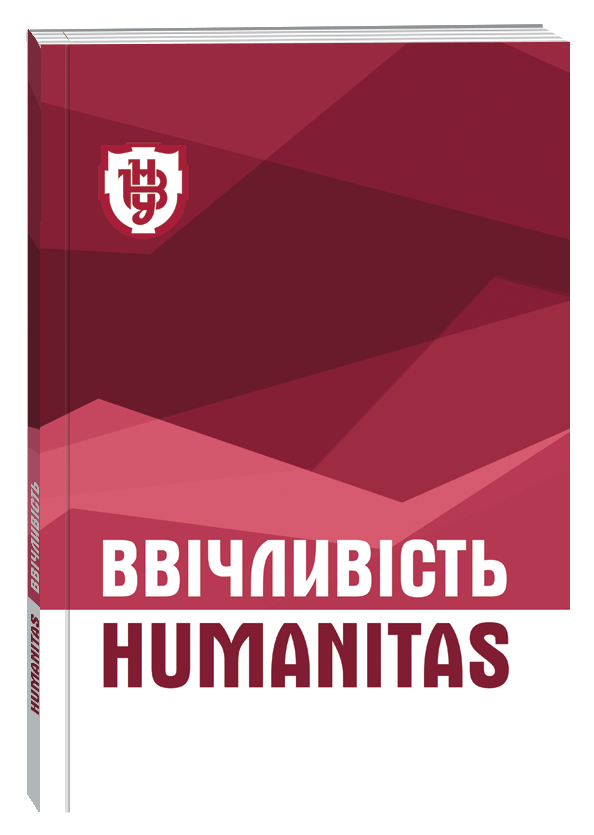SOFT SKILLS ЯК ЧИННИК СОЦІАЛЬНО-ПСИХОЛОГІЧНОЇ АДАПТАЦІЇ ВНУТРІШНЬО ПЕРЕМІЩЕННИХ ОСІБ ТА ЕМІГРАНТІВ
DOI:
https://doi.org/10.32782/humanitas/2025.4.18Ключові слова:
soft skills, адаптація, вимушені переселенці, емігрантиАнотація
Мета дослідження – проаналізувати роль м’яких навичок (soft skills) у процесі соціально-психологічної адаптації внутрішньо переміщених осіб (ВПО) та українських емігрантів. Сучасний світ позначений глобальними кризами, війнами та масовими міграційними процесами. Після повномасштабного вторгнення Росії в Україну у 2022 році мільйони українців стали внутрішньо переміщеними особами (ВПО), а значна частина була змушена покинути країну. Ситуація з переселенням супроводжується не лише матеріальними, а й серйозними психологічними труднощами: втратою соціальних ролей, звичного оточення, роботи, професійної ідентичності. У таких умовах вирішальним фактором адаптації стають м’які навички – вміння спілкуватися, керувати емоціями, працювати в команді, бути гнучким та відкритим до змін. Якщо «тверді навички» (професійні компетенції) можуть втратити свою актуальність через відмінності в законодавстві чи сертифікації, то «м’які навички» залишаються універсальними інструментами для інтеграції в нове середовище. Аналіз показує, що серед усіх м’яких навичок найбільш значущими для українських мігрантів є емоційний інтелект, адаптивність, міжкультурна компетентність та здатність до навчання. Саме ці навички мають найбільший вплив на швидкість інтеграції, рівень психологічного благополуччя та можливість відновлення професійної діяльності. - М’які навички є ключовим фактором успішної соціально-психологічної адаптації ВПО та емігрантів. - Найбільший вплив мають емоційний інтелект, адаптивність, міжкультурна компетентність та здатність до навчання. - Розвиток гнучких навичок має стати складовою інтеграційних програм для українських мігрантів. - Перспективою подальших досліджень є вивчення ролі м’яких навичок у професійній самореалізації українців за кордоном, а також розробка освітніх курсів для їх розвитку.
Посилання
Berry J. W. Immigration, acculturation, and adaptation. Applied Psychology. 1997. 46(1). 5–34.
Бібік Н. Формування soft skills у процесі сучасної освіти. Педагогічний дискурс. 2020. № 29.
Goleman D. Emotional Intelligence. Bantam Books. 2015.
Lazarus R. S. Stress and Emotion: A New Synthesis. Springer. 2006.
Музиченко І. В. Вимушені переселенці: проблема соціально-психологічної адаптації. Освіта та розвиток обдарованої особистості. Київ, 2016. № 9. С. 18–21.
Мульована Л. І. Методи психологічної допомоги. Молодий Вчений. 2014. 10(13). С. 114–116.
Психологічна допомога мігрантам:[електронний ресурс] URL: http://ur.co/77/2242-2- psihologicheskayapomoshmigrantamhtml (дата звернення: 18.08.2025).
Проблема соціальної та психологічної адаптації вимушених переселенців і шляхи її корекції [Електронний ресурс]. URL: http://ukrbukva.net/print:page,1,45878-Problema-social-noiy-i (дата звернення: 20.08.2025).
Ромек В. Г., Конторович В. А., Крукович Є. І. / Психологічна допомога в кризових ситуаціях. СПб. : Мова. 2004, 226 с.
Spitzberg B., Changnon G. Conceptualizing intercultural competence. The Sage handbook of intercultural competence. 2009. 2. 52–89.
##submission.downloads##
Опубліковано
Як цитувати
Номер
Розділ
Ліцензія

Ця робота ліцензується відповідно до Creative Commons Attribution 4.0 International License.







